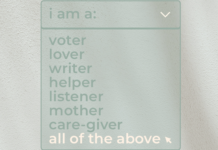I probably say “thank you” at least 50 times a day. It’s not because I have excessive amounts of gratitude; it’s an automatic response. As a small child I was trained to say thank you, and it stuck. So here I am today, saying thank you for everything and anything – to the waiter who forgot my lunch order, to the receptionist who informs me my appointment was cancelled, and to the insurance agent who denied a request for a medication I prescribed to a patient.
Robotically saying “thank you” is not the same as practicing gratitude. According to research, people who count their blessings on a regular basis are happier and healthier than those who don’t. Taking five to ten minutes at the end of each day to write down three things that went well and why has a measurable and positive effect on wellbeing.
Researchers and wellness experts call this a gratitude journal, and for many people it does wonders. But, full disclosure, it didn’t work for me. Focusing on myself and how lucky I was made me feel good in the moment but it didn’t last. After a while it felt smug and a little self-centered. It’s not that I don’t appreciate being the beneficiary of good things. There was just something missing.
It turns out there is a lot more to gratitude than being thankful for what you have. In her article, “Stop Making Gratitude All About You,” Professor Heidi Grant Halvorson captures what so many of us get wrong about gratitude:
Recent research suggests that people often make a critical mistake when expressing gratitude: They focus on how they feel — how happy they are, how they have benefited from the help — rather than focusing on the benefactor.
Halvorson’s research found that those who expressed gratitude towards another person had stronger and more loving relationships than those who focused on the benefits to themselves. In other words, if your partner sends you flowers today, you can think to yourself about how receiving flowers makes you really happy or you can channel your gratitude towards your partner by actively saying or doing something that acknowledges how awesome your partner is.
Related studies by Adam Grant highlight how gratitude is not limited to passively counting one’s blessings. His research shows that reflecting on what one has contributed instead of reflecting on what one has received, is even more powerful in terms of promoting prosocial behavior. As Grant concludes:
According to a popular mantra, we should give without remembering and receive without forgetting. Our research suggests otherwise: we should take the time to remember both what we’ve given and what we’ve received.
So this Thanksgiving, don’t just count your blessings. Count your contributions too.
Think of gratitude as an action. It’s a verb that works best when it is embodied, spoken aloud and when it connects you to someone else.
I wish you all the best,
Dr. Samantha Boardman






